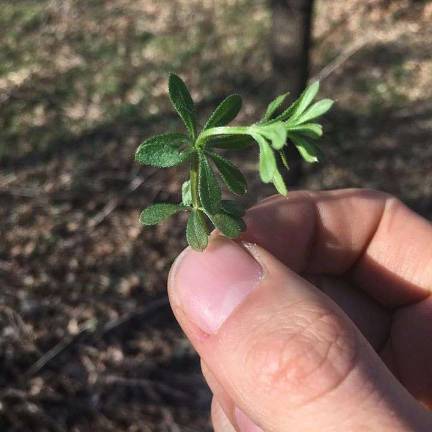A scrappy weed to flush the system

The lymphatic system is perhaps the most important, and most neglected, system of the body. It’s responsible for building and upgrading the immune system.
What we in modern society call a “cold” or “flu” is actually the body’s immune response at work. Sweating, sleeping, and expelling mucus are how the body cooks and kills viruses, dead cells, heavy metals, plastic particles, and expels them. In our misinterpretation of the symptoms as the problem, we end up shutting down these mechanisms in favor of being “symptom free,” which only shoves the stagnation deeper into the body.
Without sweating, movement, and lymphatic herbs throughout the year, the lymph system stagnates, and does not have the capacity to upgrade the immune system antibodies against viral and bacterial strains. Regular consumption of cleavers, galium aparine, can help tonify the lymph system so that it doesn’t build up to a month-long crescendo every year, called “flu season.”
If we don’t make time for these processes, we will get “sick,” which is a lot like a lymph system flush.
Cleavers grows vigorously in just about every lawn or park in North America, and (fun fact) is in the same family as coffee. During your search for it, there are several lookalikes you may come into contact with. The plant you’re looking for has tacky hairs that help it grab and spread; its twin, called “bedstraw,” lacks those hairs. Bedstraw is also edible (though a not very pleasant tasting green), but it’s the tacky-haired cleavers, with long sticky stems, that will help ward off colds and worse.
Cleavers is also a diuretic and helps to expel toxins from the lymph system through the urinary system. Its detoxifying properties make it effective in treating skin conditions from eczema to psoriasis to acne, which are all the body’s way of expelling toxins through the skin.
You can use your senses to identify a plant’s medicinal aspects: usually plants that affect lymph flow are bitter and astringent. You can test whether a plant causes glandular secretions by seeing how much you salivate while it’s in your mouth. Try chewing a dandelion – you’ll see that it enhances saliva production, which is a sign of the work that it does throughout the body.
Add cleavers to a juice or smoothie, or simply place a couple handfuls of the fresh-picked plant in a pitcher, cover with cold water and leave overnight for a delicately flavored infusion.
DAN DE LION